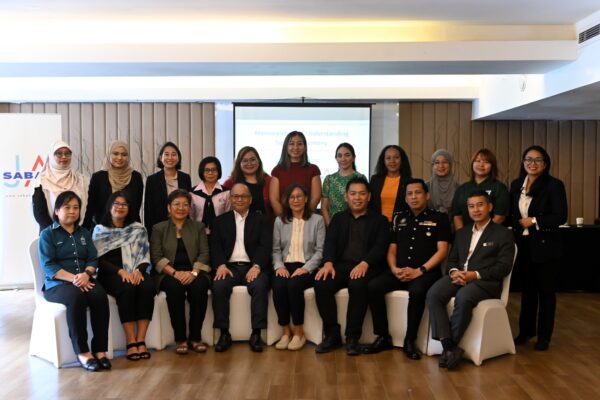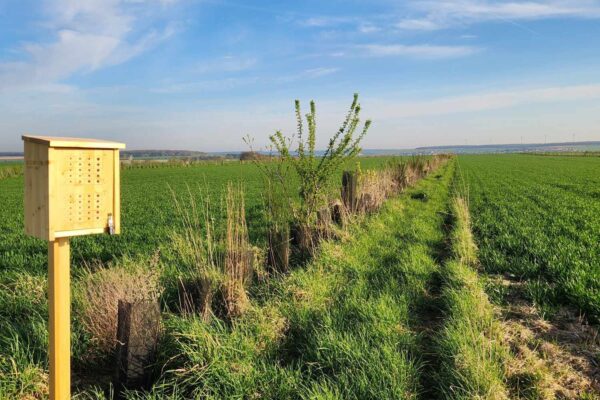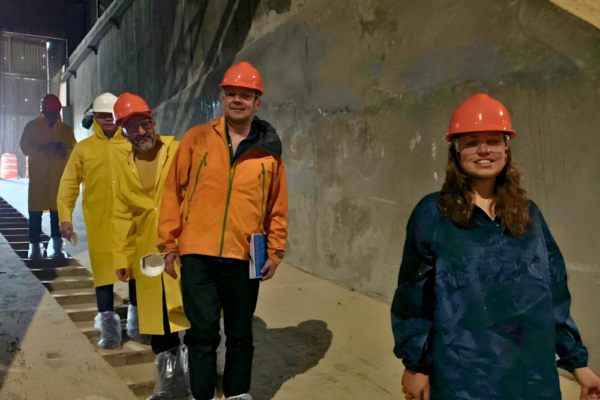6-minute read
A group of farmers in the Solomon Islands, once solely dependent on coconut farming, are now diversifying their income with a diversified range of crops and innovative entrepreneurial ventures.

In Guadalcanal, Malaita, and Central Province, 176 farmers have joined entrepreneurial groups and 236 in Western Province. Through their hard work and theoretical and practical support, they are growing crops such as tubers and fruit trees and venturing into handicrafts.
Since 2017, the Lindt Cocoa Foundation and Florin AG have supported sustainable coconut oil sourcing from the Solomon Islands in collaboration with Pacific Rim Plantation Services & the Solomon Islands Commodities Pvt Ltd and implementation partner Earthworm Foundation.
The project aims to build a resilient and thriving coconut supply chain guided by four project objectives:
- Creating value by mapping and maximising the current and potential supply chain;
- Reinforcing resilience through farmer and community awareness and training;
- Improving access to appropriate tools and equipment;
- Inspiring farmers through events and stakeholder engagement.
The four objectives put coconut farming families at the centre of the supply chain. This is done by strengthening industry awareness and business opportunities, simplifying procurement, logistics and transport strategies, and improving cash flow by ensuring transparent and fair price structure, said Earthworm's Theresa Jacobs.

The project started in Western Province, but has since expanded to Central, Guadalcanal and Malaita provinces.
Over the past five years, 3,548 families have been registered to a farmer database, thereby benefitting from on-the-ground support from our field team, as well as quicker payment times.
"100% of the supply chain is traceable, and 107 lead farmers are helping us teach our 12 modules to 16 village clusters," Jacobs said
"For nearly all these families, coconut is the main income source. So field engagement, as well as a transparent pricing structure, is welcomed by the communities."
One particularly successful activity has been the model farms, developed as practical learning opportunities and proof of concept for improving resilience.
Jacobs said this fits under the second objective of reinforcing resilience through farmer and community awareness and training.

“The model farms balance out the theoretical segment of interventions through the 12 context-specific training modules and give communities a chance to get hands-on experience in the field," she said.
Model farms showcase intercropping techniques with other crops, such as cassava, pumpkin, taro, potato, pineapples, bananas, and many more - which can be sold at local markets or used for subsistence.
“The vegetable and fruit gardens have been tended to well and replicated by individuals wanting to set up an alternative income source by selling produce at local markets," said Lawrence Hillary from the Earthworm field team. For example, Ako from Tambaka in Western Province was introduced to the model farming concept and started planting pumpkins among his other crops. Overjoyed by his regular harvests, he said, "I want to thank the project team for introducing me to the model farm concept. The knowledge I gained from the practical training and financial literacy training allowed me to grow pumpkins and earn more than a thousand Solomon Island dollars from my first sales of pumpkin fruits. I can regularly sell the pumpkins to SolTuna, which is only a 10min drive from my house."
In 2022, 17 new model farms were set up across Central, Guadalcanal, and Western provinces. Most recently, another 20 farmers in Noro decided to replicate this and set up their gardens to sell the produce locally.
“Our team regularly carries out inspections, and when they are not physically present, questions can be answered via phone or messenger services," Hillary said.
As of September 2022, more than 1000 farmers attended training sessions held throughout the year, with a relatively equal spread of women and men.

A sample of 114 farmers taken in August showed a female participation rate of 46%, Hillary said. The success of the model farms has motivated many communities to create entrepreneurial groups to sell produce at local markets and gain additional income, he said.
The success of the model farms has motivated many communities to create entrepreneurial groups to sell produce at local markets and gain additional income, he said.
The field team helps communities set up these groups, emphasising women's engagement, empowerment, and inclusion. Many groups are also registered savings clubs, like in Buni Village, Western Province, where 14 women and 3 men registered their group with the Solomon Islands National Provident Fund.

The entrepreneurial spirit triggered by these efforts has started beyond farm produce, with many now eager to expand to handicrafts.
“We will continue to support these endeavours by identifying market opportunities, teaching basic financial literacy and setting up delivery routes for produce," Jacobs said. "We also want to collaborate with other organisations and social businesses to teach knitting, sewing, weaving and dying of traditional garments."
"As the model farms expand, more and more people are becoming interested in setting up groups," Jacobs said. "This also pushes entrepreneurship among more women."


